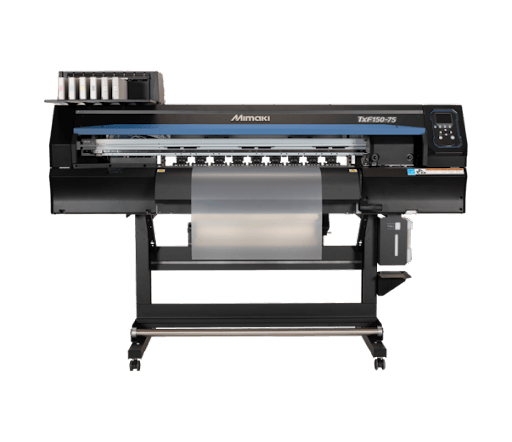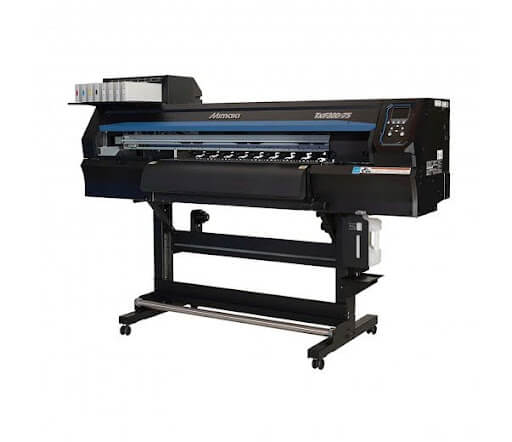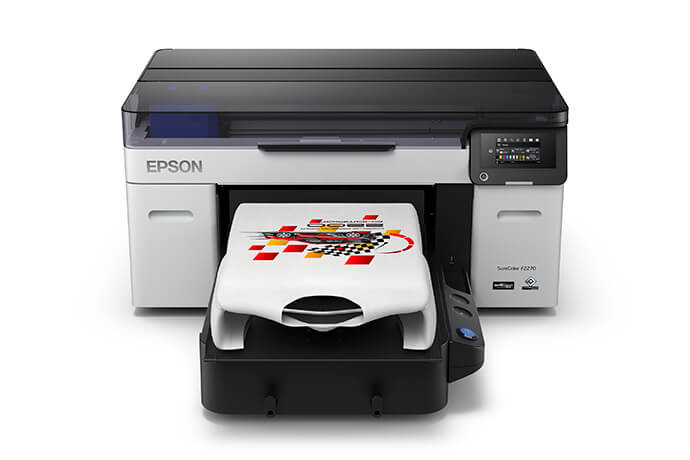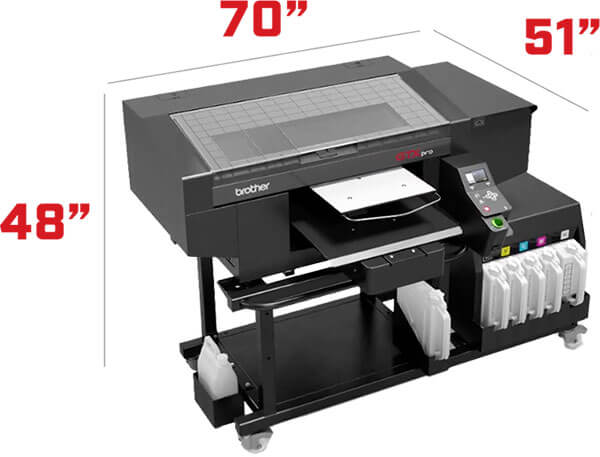With new technologies emerging and becoming cheaper and accessible to everyone, the t-shirt printing market has experienced drastic changes as the new trend of digital printing emerged and became relevant because of its efficiency and quality. As a result, the Direct Film (DTF) method has become a leader in these advancements, indicating a change in the future of the business. DTF printers are renowned for their capacity to generate vivid and long-lasting images on a wide range of textiles, including materials like nylon and polyester that have historically proven difficult to work with. Because it requires no pre-treatment and uses less ink than the Direct to Garment (DTG) the best printer for tshirt printing, this technology provides a more automated and economical alternative.
Mimaki DTF TxF150-75

A notable development in direct-to-film technology is the Mimaki TxF150-75 DTF printer, which provides a large 31.5-inch print area for transfer sheets. With its CMYK and white ECO PASSPORT certified “PHT50” inks, this device is also safe for the environment.
The flexibility and easy-to-use features allow its users to print t-shirts without the need for pre-treatment or weeding on both natural and synthetic materials.
Overall, the TxF150-75 is an excellent printing device due to its effective and colorful textile printing because of its cutting-edge ink circulation system, which ensures consistent quality and requires less maintenance.
Mimaki TxF300-75

Compared to the previous model, the Mimaki TxF300-75 enhances DTF printing with speeds three times faster. This is merely because it makes the process of decorating clothing more efficient, doesn’t require any pre-treatment, and can print bright, ECO PASSPORT-certified designs straight onto transfer films.
The TxF300-75 is a top performer in the DTF market because it is easy to use, operates efficiently, can handle both natural and synthetic textiles, and produces excellent results.
Epson F2270: T-shirt Printing

The Epson SureColor® F2270 is a hybrid printer that can print in both DTG and DTF formats. Its PrecisionCore® MicroTFP printhead and UltraChrome® DG2 ink provide exceptional picture quality.
With its bulk ink system and automatic garment thickness adjustment, it enhances productivity by supporting an extensive range of materials and shapes.
The F2270 effectively meets client demands by combining reliable software, simple maintenance, and an easy-to-use touchscreen interface.
Brother GTXpro B: T-shirt Printing

A high-volume printer with scalable and efficient architecture, the Brother GTXpro B is perfect for companies trying to get the most out of their investment (ROI). Its excellent color reproduction is a wonderful addition to its user-friendly operation and industrial-grade structure.
It also offers the user with a reliable tool that constantly works due to the printer’s sophisticated ink circulation and maintenance mechanisms.
It can handle a wide range of goods with a maximum print area of 16 x 21 inches. It can produce up to 42 prints per hour on dark clothing or 57 prints per hour on light clothing, meeting the demands of high-volume production scenarios.
Conclusion: T-shirt Printing
Overall, technology and market changes have pushed the T-shirt printing industry to a new level. From this, t-shirt printing became cheaper and more accessible to a large population.
At the same time, various models of technology emerged. DTF printers like Mimaki TxF150-75 and TxF300-75 emerged and became the best due to how they offer an easy-to-use device that needs no specific procedures to use while being cheap.
At the same time, printing machines like the Epson F2270 emerged as a highly effective tool that produces high-quality printing. Meanwhile, Brother GTXpro B became a printing machine that earned its reputation due to its reliability and capabilities.
From this, it can be said that as long as technology evolves and a great amount of demand exists, the T-shirt printing industry will continue to evolve.








